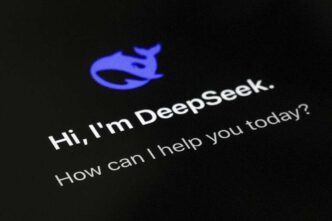As tech giants race to power the AI boom, many are turning to nuclear energy for a stable, zero-carbon electricity supply. But there’s a catch: nuclear isn’t known for speed or agility. Trey Lauderdale thinks AI can help change that.
In San Luis Obispo, California — home to Diablo Canyon, the state’s last remaining nuclear power plant — Lauderdale often found himself talking with locals who worked there. “They’re like the coaches of our flag football team,” he joked. Through those conversations, he discovered a staggering bottleneck: the plant manages around 2 billion pages of documents.
That data sprawl sparked an idea.
Lauderdale, a seasoned entrepreneur from the healthcare space, launched Atomic Canyon in 2023 to bring AI-powered document search to the nuclear sector. His goal? Help engineers, technicians, and compliance teams quickly find the exact materials they need in a sea of regulatory paperwork.
The startup gained early traction in late 2024 with a deal at Diablo Canyon. That led to interest from other nuclear operators — and ultimately, a $7 million seed round led by Energy Impact Partners. Other backers include Commonweal Ventures, Plug and Play Ventures, Tower Research Ventures, Wischoff Ventures, and several angel investors.
Building Reliable AI for a High-Stakes Industry
But bringing AI into the nuclear space wasn’t as easy as plugging in ChatGPT. “We quickly realized the AI hallucinates when it sees these nuclear words,” Lauderdale explained. The models just hadn’t encountered enough examples of highly specialized terminology and acronyms.
To build a system that wouldn’t guess or go rogue, Atomic Canyon turned to Oak Ridge National Laboratory, home to the world’s second-fastest supercomputer. The lab awarded the startup 20,000 GPU hours to help develop its custom models.
Atomic Canyon now uses sentence embedding and retrieval-augmented generation (RAG) to make nuclear documents searchable. RAG allows large language models to generate answers based on real, verifiable sources — drastically reducing the risk of “hallucination,” or false responses.
For now, the startup is focused on making search rock-solid before expanding to full generative capabilities. Lauderdale said the team is experimenting with using AI to summarize or rewrite document titles — a low-risk way to test the system.
“One of the reasons we’re starting with titles is that getting one wrong is annoying, not dangerous,” he said. “But eventually, we envision Atomic Canyon’s AI generating draft documents with references built in — always with a human in the loop.”
Unlocking Decades of Untapped Value in Nuclear Archives
While the long-term vision is bold, Lauderdale is grounded in the present. “Search is the foundational layer,” he said. “You have to nail the search.” And with the nuclear industry buried under decades of regulatory and engineering records, he believes Atomic Canyon has plenty of room to grow in that space alone.
As tech companies bet on nuclear to meet AI’s power needs, tools like Atomic Canyon could help the industry move faster — not just by splitting atoms, but by unlocking the information that’s already there.













